A Brief History
India has been living in quarantine since 22nd March 2020. But the outbreak of this pandemic is not new; it was named COVID-19 as a Pneumonia outbreak was reported in December 2019 in Wuhan, China, the outbreak was traced to a novel strain of coronavirus, hence the name 2019-novel corona. We all knew that this disease sooner or later was going to affect us. In today’s blog, we will talk about how these four months have created a stressful and anxiety-filled environment and how to deal with it. We are not going to talk about what is COVID-19? Where did it come from? What are the symptoms of COVID-19? Everyone knows quite well about the coronavirus through social media, news channels, and WhatsApp University. Here we will be focused more on the psychological aspect of the situation.
The outbreak of coronavirus disease 2019 (COVID-19) is quite stressful for people. Fear and anxiety about a disease can be overwhelming and cause strong emotions in adults and children. Coping with stress will make you, the people you care about, and your community stronger.
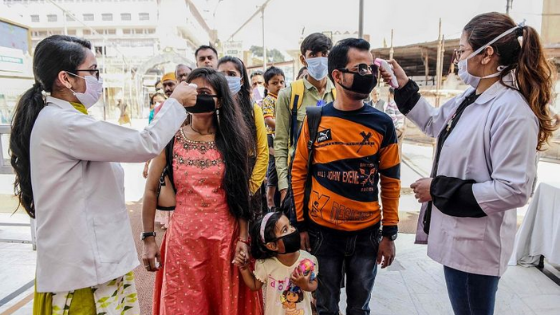
Source: Google
These are confusing, stressful times for all of us. As the coronavirus pandemic affects numerous facets of our society, it also impacts each person in different ways. Many are already feeling the disruptions to daily life, children been sent home from college, places of worship have been closed, and the comforting social gatherings that usually fill my weekends are off-limits. We are all feeling uncertain about what could happen in the coming weeks, as we hope to slow the spread of this pandemic. Feelings of anxiety and uncertainty are completely normal during times like this.
The COVID-19 crisis has combined mental health stressors that have been studied before in other disasters, but which have never been seen consolidated in one global crisis. It has left millions without jobs, sent billions into isolation and forced nearly everyone on earth to grapple with the feeling that they or those they love are suddenly physically vulnerable. The nature of the disease means that there can be no certainty about when the worst will pass. Hundreds of thousands have been infected, thousands have died, the virus continues to spread, and a vaccine is uncertain right now.
Everyone reacts differently to stressful situations. How you respond to the outbreak can depend on your background, the things that make you different from other people, and the community you live in.
People who may respond more strongly to the stress of a crisis include.
- Older people and people with chronic diseases who are at higher risk for COVID-19
- Children and teens
- People who are helping with the response to COVID-19, like doctors and other health care providers, or first responders
- People who have mental health conditions including problems with substance use
Stress during an infectious disease outbreak can include
- Fear and worry about your own health and the health of your loved ones
- Changes in sleep or eating patterns
- Difficulty sleeping or concentrating
- Worsening of chronic health problems
- Increased use of alcohol, tobacco, or other drugs
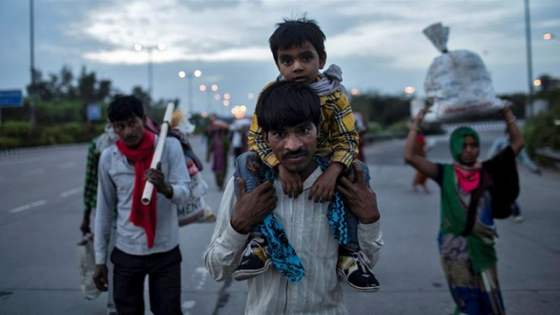
Source: Google
Things you can do to support yourself
- Take breaks from watching, reading, or listening to news stories, including social media. Hearing about the pandemic repeatedly can be upsetting.
- Take care of your body. Take deep breaths, stretch. Try to eat healthy, well-balanced meals, exercise regularly at home, get plenty of sleep, and avoid anything that can destroy your immune system.
- Make time to unwind. Try to do some other activities you enjoy.
- Connect with others. Talk with people you trust about your concerns and how you are feeling.
Talk to your children
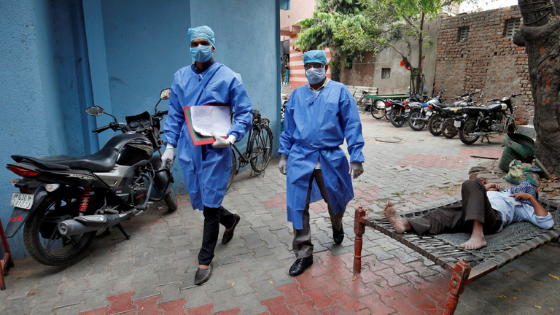
Source: Google
Children may feel afraid or anxious about the new coronavirus. It’s important to validate feelings of worry and not dismiss them outright.
- Listen. After hearing children out, parents can fill them in with correct information to calm their worries.
- Provide accurate information. Determine what your children already know about the virus and give them accurate information to reduce their risk of catching it. This might include asking children about specific concerns or what they know about the coronavirus and providing practical solutions to help them minimize any risk.
- Focus on prevention. Keep discussions focused on preventive actions. Set up and praise healthy hand-washing habits, and maintain regular routines for playtime, meals and other activities.
- If someone in your family is sick with COVID-19 or another illness, it can be hard for children to understand. This is where it is important to have an established plan to minimize the worries and keep focused on proactive solutions, you know your child and how they learn best — make sure that your explanations are clear and helpful.
Stay informed—but don’t obsessively check the News
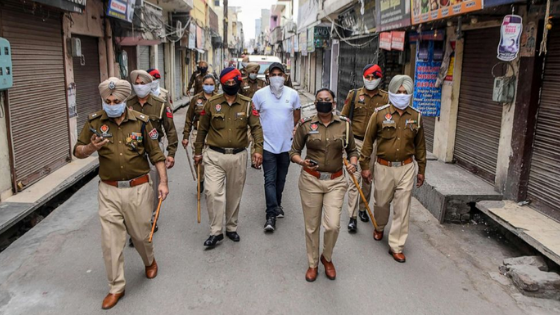
Source: Google
It’s vital to stay informed, particularly about what’s happening in your community, so you can follow advised safety precautions and do your part to slow the spread of coronavirus. But there’s a lot of misinformation going around, as well as sensationalistic coverage that only feeds into fear. It’s important to be discerning about what you read and watch. It is important to not let fear control your life.
- Stick to trustworthy sources such as the CDC, the World Health Organization, and your local public health authorities.
- Limit how often you check for updates. Constant monitoring of news and social media feeds can quickly turn compulsive and counterproductive—fueling anxiety rather than easing it. The limit is different for everyone, so pay attention to how you’re feeling and adjust accordingly.
- Step away from media if you start feeling overwhelmed. If anxiety is an ongoing issue, consider limiting your media consumption to a specific time frame and time of day (e.g. thirty minutes each evening at 6 pm).
- Be careful what you share. Do your best to verify the information before passing it on We all need to do our part to avoid spreading rumors and creating unnecessary panic.
Focus on the things you can control

Source: Google
We’re in a time of massive upheaval. There are so many things outside of our control, including how long the pandemic lasts, how other people behave, and what’s going to happen in our communities. That’s a tough thing to accept, and so many of us respond by endlessly searching the Internet for answers and thinking over all the different scenarios that might happen. But as long as we’re focusing on questions with unknowable answers and circumstances outside of our personal control, this strategy will get us nowhere—aside from feeling drained, anxious, and overwhelmed.
When you feel yourself getting caught up in fear of what might happen, try to shift your focus to things you can control. For example, you can’t control how severe the coronavirus outbreak is in your city or town, but you can take steps to reduce your own personal risk (and the risk you’ll unknowingly spread it to others), such as:
- Washing your hands frequently (for at least 20 seconds) with soap and water or a hand sanitizer that contains at least 60% alcohol.
- Avoiding touching your face (particularly your eyes, nose, and mouth).
- Staying home as much as possible, even if you don’t feel sick.
- Avoiding crowds and gatherings of 10 or more people.
- Avoiding all non-essential shopping and travel.
- Keeping 6 feet of distance between yourself and others when out.
- Getting plenty of sleep, which helps support, your immune system.
- Following all recommendations from health authorities.
Take care of your body and spirit
This is an extraordinarily trying time, and all the tried-and-true stress management strategies apply, such as eating healthy meals, getting plenty of sleep, and meditating. Beyond that, here are some tips for practicing self-care in the face of the unique disruptions caused by the coronavirus.
- Be kind to yourself. Go easy on yourself if you’re experiencing more depression or anxiety than usual. You’re not alone in your struggles.
- Maintain a routine as best as you can. Even if you’re stuck at home, try to stick to your regular sleep, school, meal, or work schedule. This can help you maintain a sense of normalcy.
- Take time out for the activities you enjoy. Read a good book, watch a comedy, play a fun board or video game, make something—whether it’s a new recipe, a craft, or a piece of art. It doesn’t matter what you do, as long as it takes you out of your worries.
References:
- https://www.cdc.gov/coronavirus/2019-ncov/daily-life-coping/managing-stress-anxiety.html
- https://www.who.int/docs/default-source/coronaviruse/helping-children-cope-with-stress-print.pdf?sfvrsn=f3a063ff_2
- https://www.hopkinsmedicine.org/health/conditions-and-diseases/coronavirus/stressed-about-covid19-heres-what-can-help
- https://en.wikipedia.org/wiki/Coronavirus
- https://www.helpguide.org/articles/anxiety/coronavirus-anxiety.htm
Vipin Kumar Tanwar is associated with Psycho-social clinical studies from the last six years. He has graduated with a Masters Degree in Clinical Psychology with a keen interest in establishing the Philosophy of relationship between Psychology and our Society. He is now working with Syngrity Transformational Solutions.
“Man knows much more than he understands.” – by Alfred Adler







 MALATI VASUDEVA
MALATI VASUDEVA VIKRAM BADHWAR
VIKRAM BADHWAR PRIYANKA KUMAR
PRIYANKA KUMAR SUMAL VARGHESE
SUMAL VARGHESE




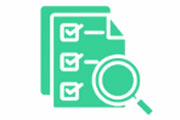

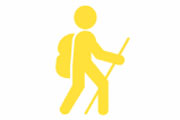








Very informative n a crisp narrative on how to handle stress / anxiety in present times.
Thank you for your comment.
Hey Vipin, thank you for sharing. Good that you mention the important aspect of verifying information. I see a lot of strange campaigns spreading false information and/or discrediting decent scientists out of political motives. It’s necessary to trace information to its source to the extent possible, or at least understand the potential vested interests behind information, speakers, politicians, scientists. Take care, rest well.
Thank you for your feedback ma’am.
Foi divertido ler seu artigo.
muito obrigado
Seu blog é um sucesso, muito completo. Ahhh quando a paixão está lá, tudo é 🙂 Ira Rolf Torrance
muito obrigado
Völlig komponiertes Themenmaterial, danke für die selektive Information. Britt Gustave Wilinski
vielen Dank